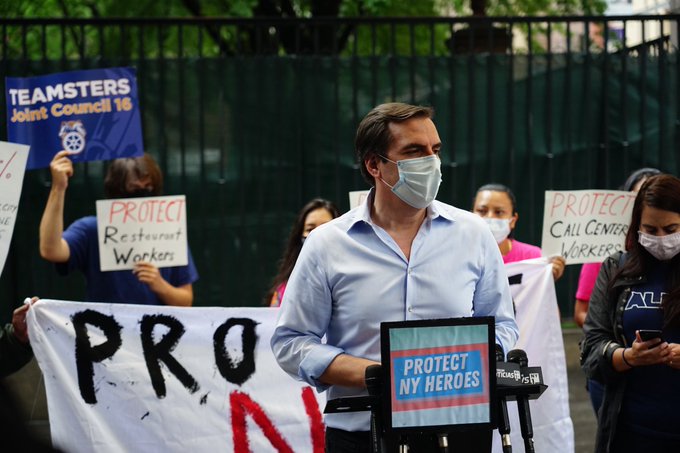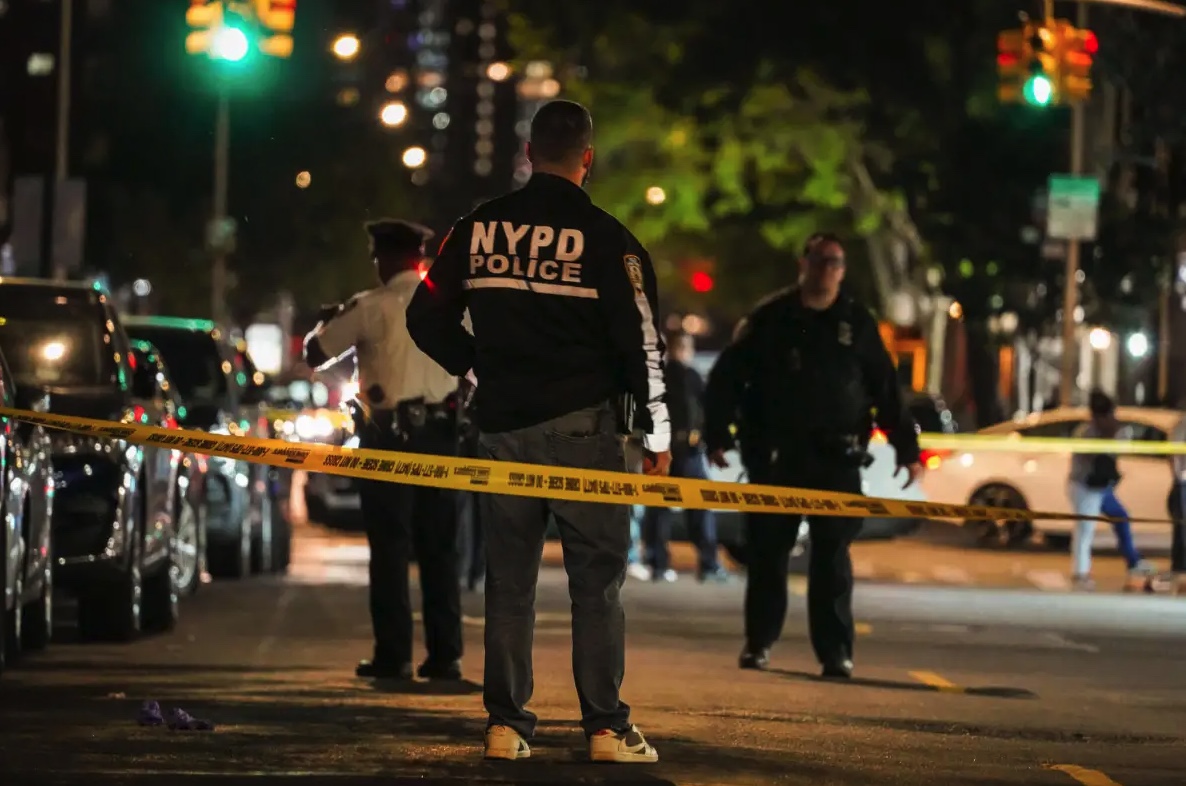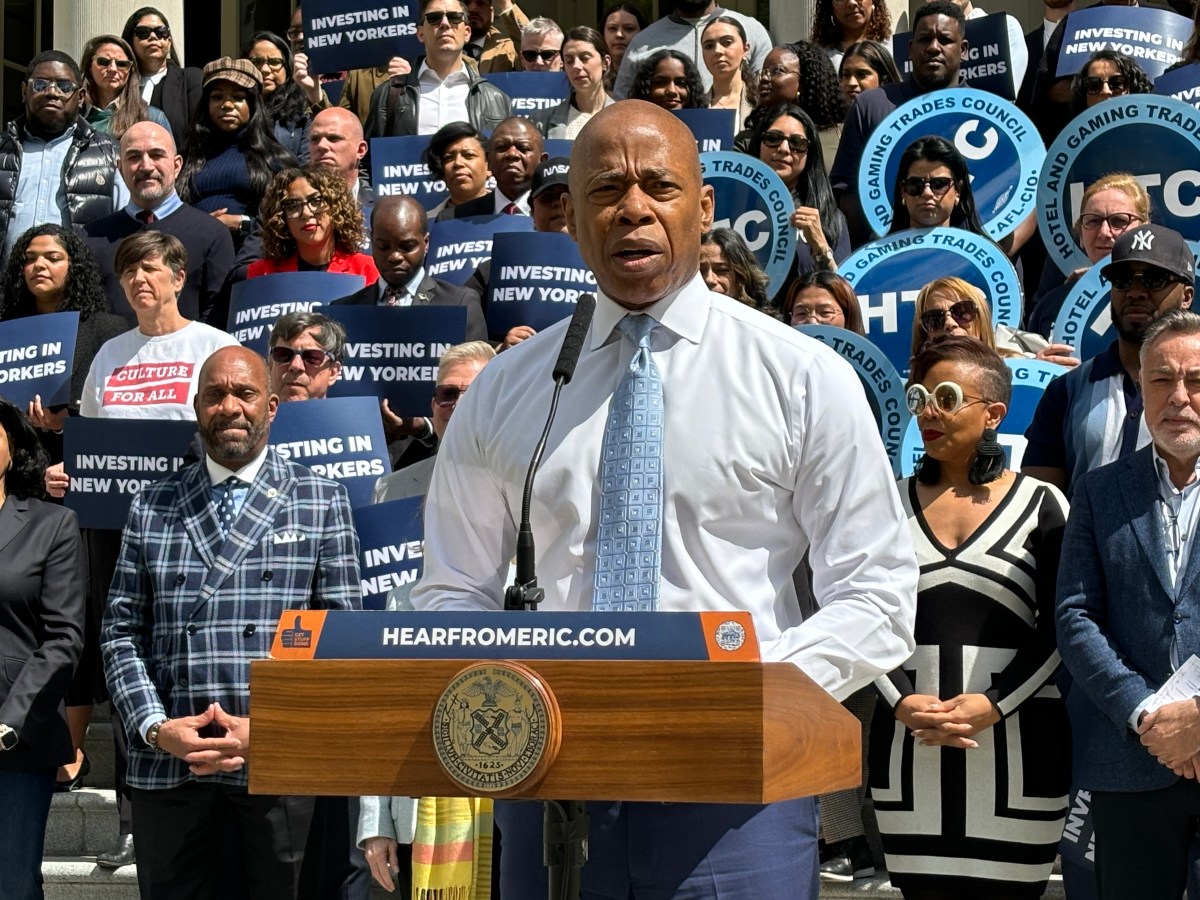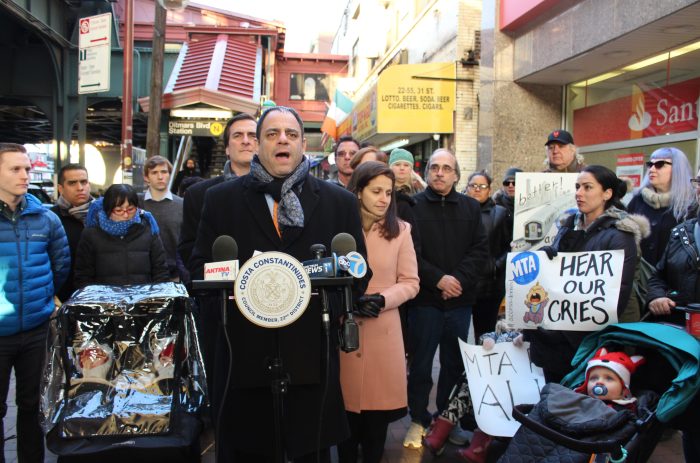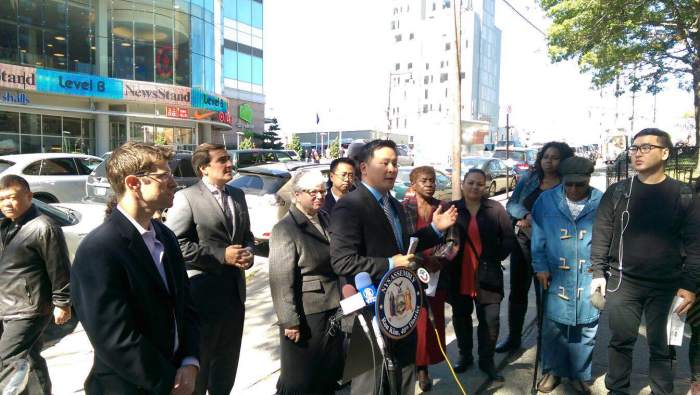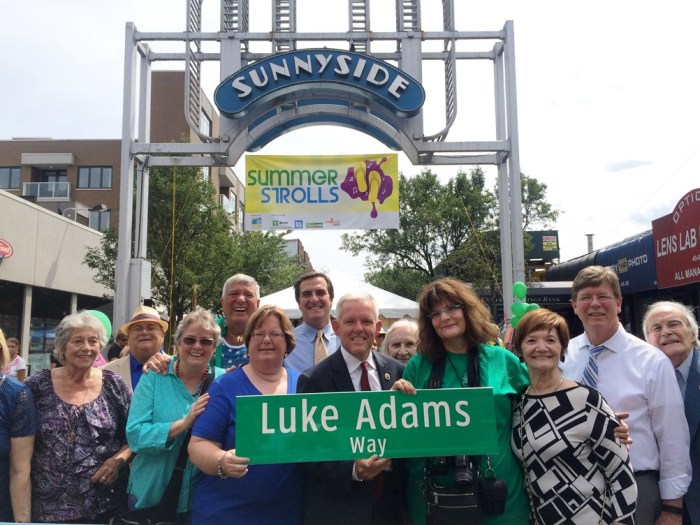The state Senate approved the New York Health and Essential Rights Act which mandates extensive new workplace health and safety rules in response to the COVID-19 pandemic.
The package of bills, sponsored by state Senator Michael Gianaris, is known as the NY HERO Act, which includes legislation to increase the amount of shared work benefits to the maximum allowed by federal law. More than 100 labor, community and safety organizations supported the passage of the bills that will encourage employer use of shared work programs to avoid layoffs and measures to increase the amount of shared work benefits to the maximum allowed by federal law.
Additionally, the legislation will promote career paths into healthcare, permit employee time off for vaccinations to be administered, and grant an enhanced death benefit to families of deceased public employees.
“Too many workers have already sacrificed their health for our community’s benefit,” Gianaris said. “The New York HERO Act will honor their efforts by giving the workers the tools to protect themselves while on the job. I appreciate the support for this proposal from my colleagues in both houses and so many organizations throughout New York.”
The regulations must include protocols on testing, PPE, social distancing, hand hygiene, disinfection, and engineering controls. Workers would also be given a direct role in monitoring and reporting violations through workplace health and safety committees and employees would be protected from retaliation for utilizing their rights under the law.
“Throughout the COVID-19 pandemic, workers across our state have had to put their lives on the lives of their families at risk to keep New York running,” said state Senator Jessica Ramos, who also serves as chair of the Labor Committee. “Passing the New York HERO Act is an important first step to protect the lives of working families, requiring businesses to have enforceable safety standards.”
The NY HERO Act had the wide-ranging support of Queens lawmakers.
“The COVID-19 Workforce Protections Legislative Package helps the families of frontline workers who tragically succumbed to the virus, assists those still struggling to find work because of the virus, and helps New Yorkers receive a vaccination as we fight this pandemic,” state Senator Toby Ann Stavisky said.
The package of bills will collectively address many issues faced by essential workers who live in southeast Queens.
“The COVID-19 pandemic has affected nearly all aspects of life,” state Senator James Sanders said. “In order to return to some semblance of normalcy, we need to protect New Yorkers with as much assistance as possible especially when it comes to healthcare, being vaccinated, and maintaining a safe workplace environment.”
The legislation would also provide a roadmap out of the economic crisis that followed the government mandated shutdown that has impacted so many businesses across Queens.
“Creating a safe environment for workers is a crucial step in New York’s economic recovery,” state Senator John Liu said. “Workers should be able to do their jobs without fear of getting infected. In addition, providing employees with time off to get vaccinated will make workplaces safer and will make it easier for more people to get the shot, helping us achieve collective immunity. This package of workplace safety and support bills will have a significant impact on the statewide return to normal.”
Judy Gonzalez, president of the New York State Nurses Association, said the absence of such a standard resulted in disproportionate rates of infection, complications, and death across the state during the coronavirus emergency.
“As the state’s infection and hospitalization rates continue to stay dangerously high, and the variant virus strains threaten to spread rapidly, swift action must be taken now to protect so-called essential workers, the vast majority of whom are Black and Brown, and who’ve historically suffered from the worst health indices an lack of access to quality health care,” she said.

